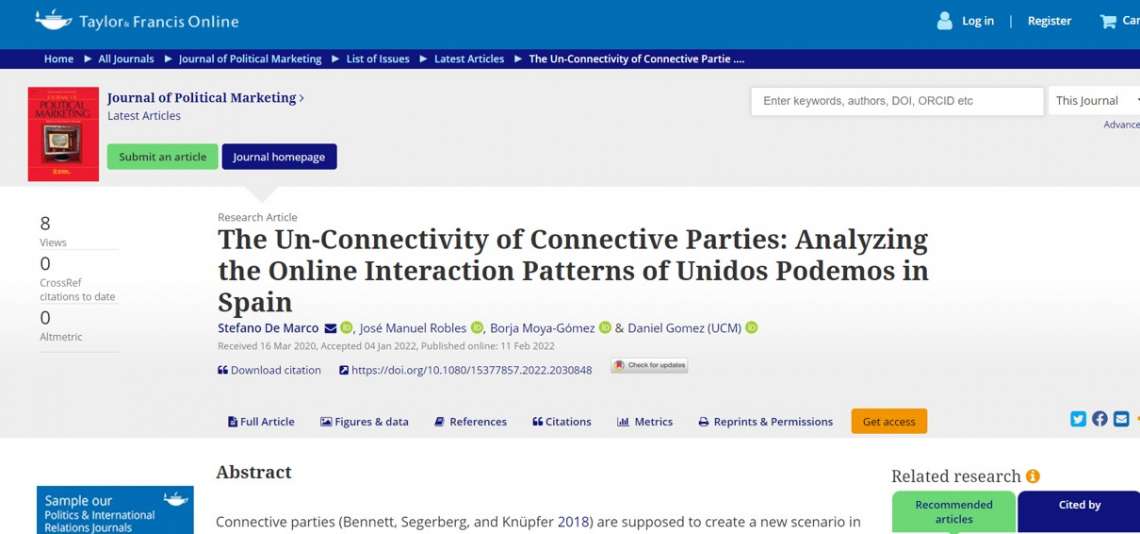Nuevo artículo:The Un-Connectivity of Connective Parties: Analyzing the Online Interaction Patterns of Unidos Podemos in Spain
Borja Moya-Gómez del equipo de TGIS firma este artículo de la revista Journal of Political Marketing
18 feb 2022 - 09:16 CET
Disponible en:https://www.tandfonline.com/doi/abs/10.1080/15377857.2022.2030848?journalCode=wplm20
Abstract
Connective parties (Bennett, Segerberg, and Knüpfer 2018) are supposed to create a new scenario in online political communication. They are conceived as new political subjects, characterized by reciprocal communication flows across social networking sites (SNSs), and the creation of fluid online relationships between “connective representatives” and their constituents. This paper focuses on the Spanish connective party “Podemos” to test this hypothesis, by comparing the communicative styles of Spanish Members of Parliament (MPs) on Twitter, depending on their reference party and the interlocutor they are interacting with. Our results show that Podemos MPs are not more inclined to interact with ordinary citizens than MPs from other political parties, and this provides further evidence against the idea that SNSs could strengthen the relationship between representatives and citizens, at least in the case of Spain. Instead, SNSs appear to be used as tools for the one-way transmission of messages from political parties and representatives, leading to the conclusion that they play an important role in spreading political messages to large audiences and in political campaigning, but not in fostering deliberation.

